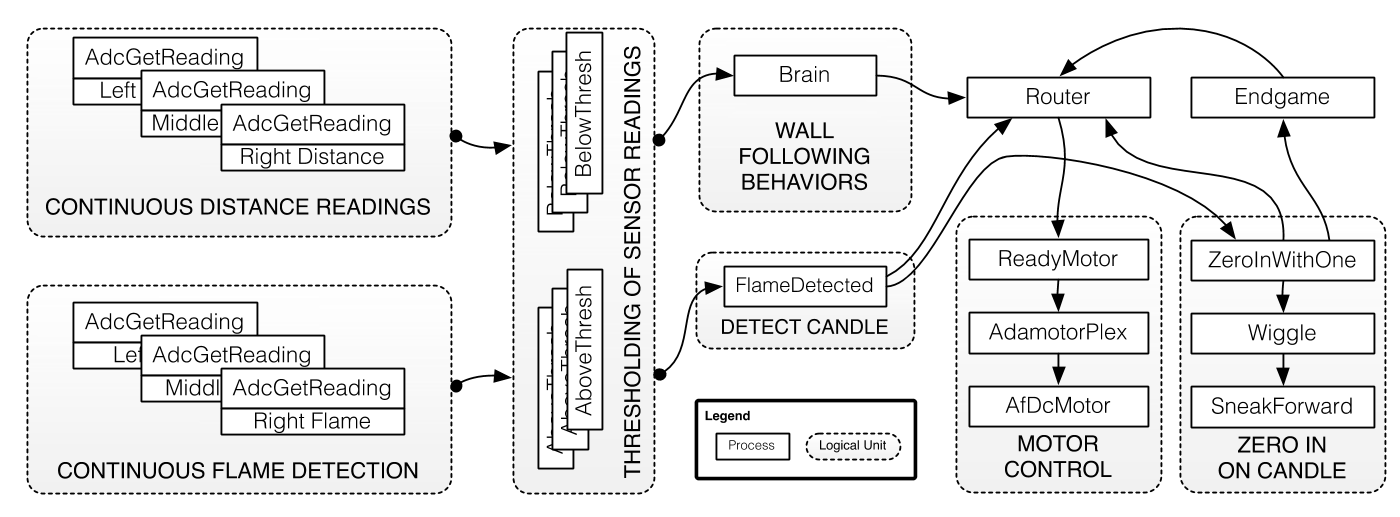Exploring and evolving process-oriented control for real and virtual fire fighting robots

ABSTRACT
Current research in evolutionary robotics is largely focused on creating controllers by either evolving neural networks or refining genetic programs based on grammar trees. We propose the use of the parallel, dataflow languages for the construction of effective robotic controllers and the evolution of new controllers using genetic programming techniques. These languages have the advantages of being built on concurrent execution frameworks that lend themselves to formal verification along with being visualized as a dataflow graph. In this paper, we compare and contrast the development and subsequent evolution of one such process-oriented control algorithm. Our control software was built from composable, communicating processes executing in parallel, and we tested our solution in an annual fire-fighting robotics competition. Subsequently, we evolved new controllers in a virtual simulation of this parallel dataflow domain, and in doing so discovered and quantified more efficient solutions. This research demonstrates the effectiveness of using process networks as the basis for evolutionary robotics.